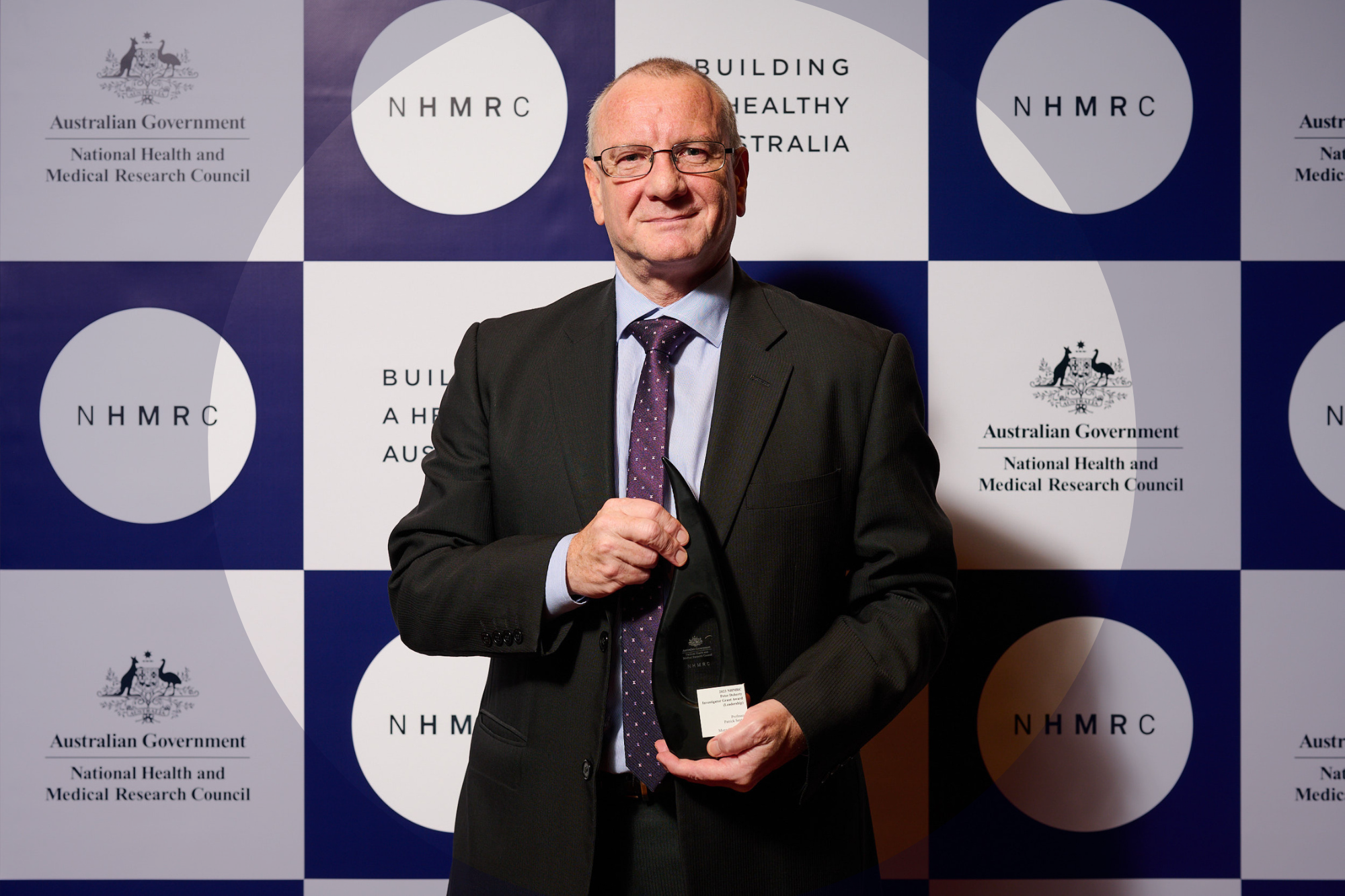Professor Patrick Sexton is the Professor of Pharmacology at the Monash Institute of Pharmaceutical Sciences and is the Director at the ARC Centre for Cryo-electron Microscopy of Membrane Proteins. Professor Sexton is a leader in progressing our understanding of G protein-coupled receptors (GPCRs), particularly allosteric modulation and biased agonism, and applying cryo-EM to study structure and dynamics of GPCRs. He is a Clarivate Analytics highly cited researcher and an elected Fellow of the British Pharmacological Society (BPS). Professor Sexton is also the co-founder of Septerna Inc and DACRA Tx and has been the recipient of many awards for his scientific contributions that have had major impacts on biological chemistry research.
My research explores the biology of a large family of proteins, called G protein-coupled receptors (GPCRs), which reside in the membranes of cells. They convey information about the cell’s external environment to the inside of the cell, resulting in changes to cell, tissue, organ, and whole-body function. These receptors play important roles in all aspects of physiology, and consequently dysregulation of GPCRs can drive or compound the severity of many diseases.
The corollary to this is that GPCRs are also excellent targets for disease treatment.
Throughout my career, my laboratory’s research has focused on fundamental understanding of how GPCRs work, and how both natural and synthetic ligands can regulate receptor function. We now recognise that GPCR function is very complex, and this has required changes to the way we think about developing new drugs, as well as re-evaluating what we know about many approved drugs.
My laboratory has played an important role in evolving many of the new paradigms that are now a routine part of modern GPCR drug discovery and development.
Recently, we have been able to build on our 30+ years of fundamental research to co-found new GPCR drug discovery companies. One of these, Septerna Inc that launched in 2022, is currently on track to initiate Phase I clinical studies for their most advanced program in the latter half of 2024, which is very exciting.
The Peter Doherty Investigator Grant Award is extremely important as it recognises the critically important role that basic science plays in building new knowledge that can change how we think about drug discovery and development for one of the most important target classes.
It emphasises that the pursuit of deep scientific understanding can realise broad long-term benefits by providing new ways to modulate GPCRs, opening opportunities for the discovery and development of novel medicines.
My current Investigator Grant focuses on one aspect of the complexity of GPCR biology, and that is the potential for fundamental changes to how receptors function through engaging with membrane-bound accessory proteins.
From our earlier research, we already know that such interactions are required to enable functions of specific receptors involved in metabolic disease and migraine, but they remain critically understudied.
The outcomes from the grant will lead to both a basic understanding of how these accessory proteins work and new ways to modulate the GPCR-accessory protein complexes as novel drug targets.
There are multiple factors that have underpinned the success of the laboratory. Foremost among these has been the ability for forging long-term partnerships with incredible researchers, particularly Professor Arthur Christopoulos and Professor Denise Wootten.
These collaborations, built on trust and respect, have enabled us to undertake much broader research programs than wouldn't have been possible alone, such that in key programs we can move from atomic detail structures, through detailed pharmacological analysis and cell biology all the way to testing hypotheses in preclinical disease models.
Another key has been the supportive research environment provided by the Monash Institute of Pharmaceutical Sciences and the critical roles that strong leaders, focused on both research culture and excellence, have played in enabling our science.
Finally, and most definitely not least, has been all the amazing researchers who have been or currently are part of the laboratory. They are the true drivers of our research success, and the Peter Doherty Investigator Grant Award is recognition of their efforts over the years.

